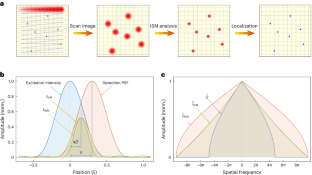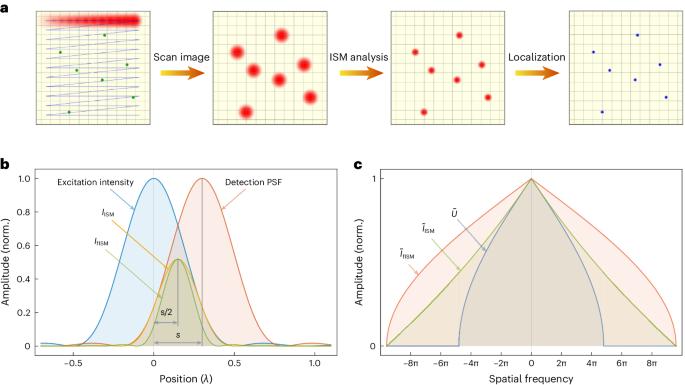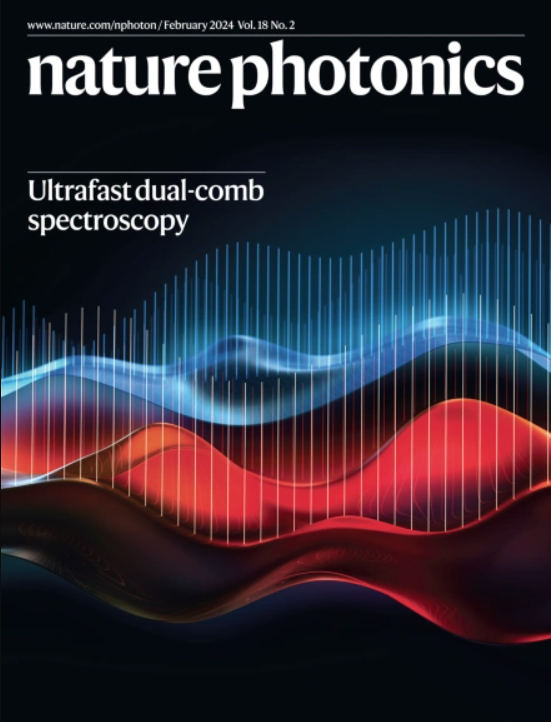Doubling the resolution of fluorescence-lifetime single-molecule localization microscopy with image scanning microscopy
IF 32.3
1区 物理与天体物理
Q1 OPTICS
引用次数: 0
Abstract
In this study, we integrate a single-photon detector array into a confocal laser scanning microscope, enabling the combination of fluorescence-lifetime single-molecule localization microscopy with image scanning microscopy. This unique combination delivers a twofold improvement in lateral localization accuracy for single-molecule localization microscopy (SMLM) and maintains its simplicity. Moreover, the addition of lifetime information from our confocal laser scanning microscope eliminates chromatic aberration, particularly crucial for achieving few-nanometre resolution in SMLM. Our approach, named fluorescence-lifetime image scanning microscopy SMLM, is demonstrated through direct stochastic optical reconstruction microscopy and DNA point accumulation for imaging in nanoscale topography experiments on fluorescently labelled cells, showcasing both resolution enhancement and fluorescence-lifetime multiplexing capabilities. The integration of a single-photon detector array and imaging scanning microscopy in a confocal scanning microscope enables doubling the resolution of single-molecule localization microscopy.


利用图像扫描显微镜将荧光-寿命单分子定位显微镜的分辨率提高一倍
在这项研究中,我们将单光子探测器阵列集成到共聚焦激光扫描显微镜中,实现了荧光-寿命单分子定位显微镜与图像扫描显微镜的结合。这种独特的组合使单分子定位显微镜(SMLM)的横向定位精度提高了两倍,并保持了其简便性。此外,共焦激光扫描显微镜提供的寿命信息消除了色差,这对实现单分子定位显微镜的几纳米分辨率尤为重要。我们的方法被命名为荧光-寿命图像扫描显微镜 SMLM,它通过直接随机光学重建显微镜和 DNA 点积累技术在荧光标记细胞的纳米级形貌实验中进行成像,展示了分辨率增强和荧光-寿命多路复用能力。
本文章由计算机程序翻译,如有差异,请以英文原文为准。
求助全文
约1分钟内获得全文
求助全文
来源期刊

Nature Photonics
物理-光学
CiteScore
54.20
自引率
1.70%
发文量
158
审稿时长
12 months
期刊介绍:
Nature Photonics is a monthly journal dedicated to the scientific study and application of light, known as Photonics. It publishes top-quality, peer-reviewed research across all areas of light generation, manipulation, and detection.
The journal encompasses research into the fundamental properties of light and its interactions with matter, as well as the latest developments in optoelectronic devices and emerging photonics applications. Topics covered include lasers, LEDs, imaging, detectors, optoelectronic devices, quantum optics, biophotonics, optical data storage, spectroscopy, fiber optics, solar energy, displays, terahertz technology, nonlinear optics, plasmonics, nanophotonics, and X-rays.
In addition to research papers and review articles summarizing scientific findings in optoelectronics, Nature Photonics also features News and Views pieces and research highlights. It uniquely includes articles on the business aspects of the industry, such as technology commercialization and market analysis, offering a comprehensive perspective on the field.
 求助内容:
求助内容: 应助结果提醒方式:
应助结果提醒方式:


